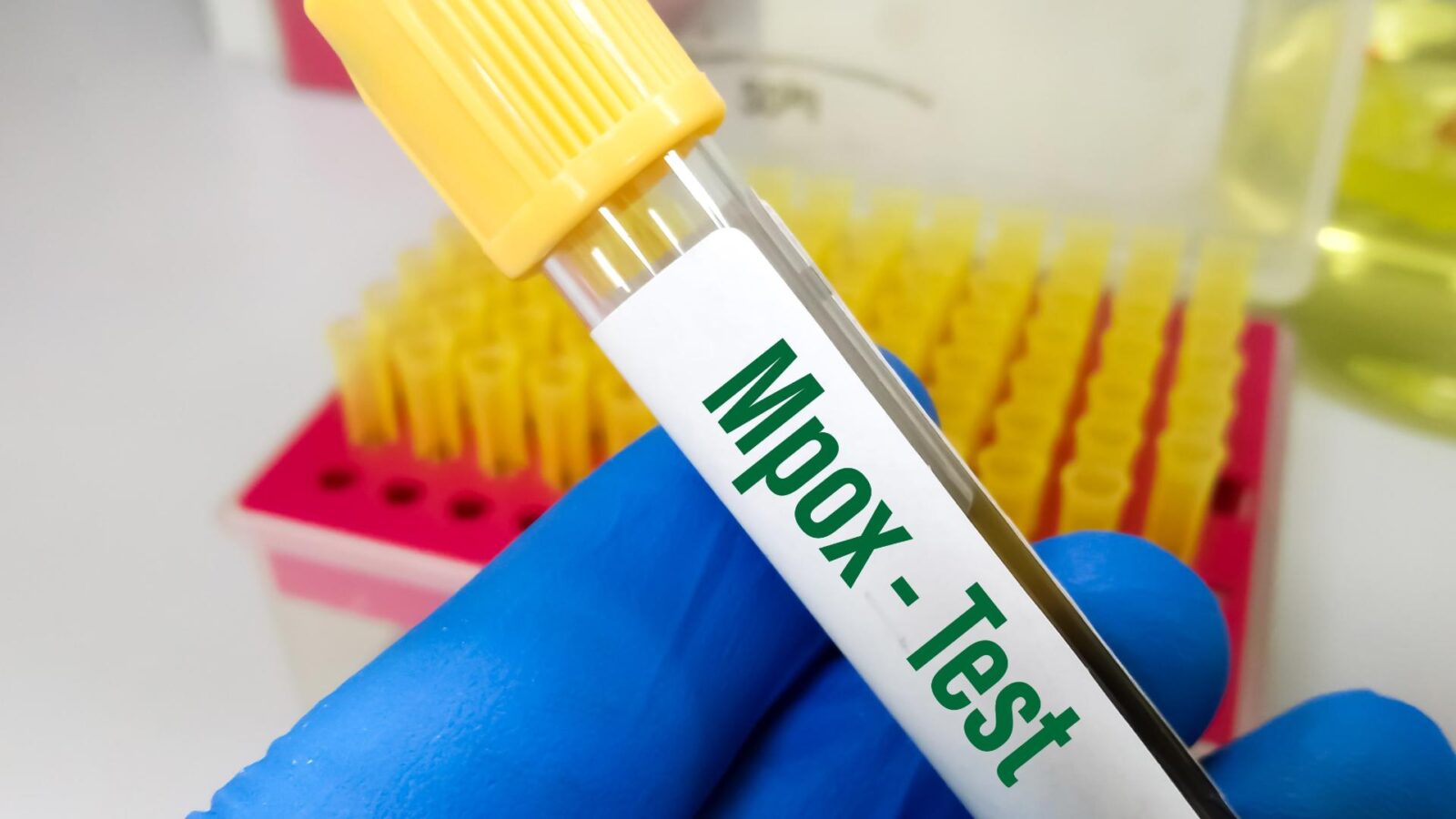The World Health Organisation (WHO) on Wednesday, August 14 declared mpox (monkeypox) a public health emergency of international concern.
WHO Director-General Tedros Adhanom Ghebreyesu said the detection and rapid spread of a new clade of mpox in eastern DRC, its detection in neighbouring countries that had not previously reported mpox, and the potential for further spread within Africa and beyond is “very worrying”.
But what exactly is mpox?
Mpox is an illness caused by the monkeypox virus. It is a viral infection which can spread between people and occasionally from the environment to people via things and surfaces that have been touched by a person with mpox.
In settings where the monkeypox virus is present among some wild animals, it can also be transmitted from infected animals to people who have contact with them.
Mpox symptoms
Mpox can cause a range of signs and symptoms. While some people have less severe symptoms, others may develop more serious illness and need care in a health facility. Those typically at higher risk of more severe symptoms include people who are pregnant, children and persons that are immunocompromised, including people with untreated and advanced HIV disease.
Common symptoms of mpox include a rash which may last for 2–4 weeks. This may start with, or be followed by, fever, headache, muscle aches, back pain, low energy and swollen glands (lymph nodes). The rash looks like blisters or sores, and can affect the face, palms of the hands, soles of the feet, groin, genital and/or anal regions. These lesions may also be found in the mouth, throat, anus, rectum or vagina, or on the eyes. The number of sores can range from one to several thousand. Some people develop inflammation inside the rectum (proctitis) that can cause severe pain, as well as inflammation of the genitals that may cause difficulties urinating.
In most cases, the symptoms of mpox go away on their own within a few weeks with supportive care, such as medication for pain or fever. However, in some people, the illness can be severe or lead to complications and even death. New-born babies, children, people who are pregnant and people with underlying immune deficiencies may be at higher risk of more serious mpox disease and death.
Severe disease due to mpox may include larger, more widespread lesions (especially in the mouth, eyes, and genitals), secondary bacterial infections of the skin or blood and lung infections. Complications can include severe bacterial infection from skin lesions, mpox affecting the brain (encephalitis), heart (myocarditis) or lungs (pneumonia), and eye problems. People with severe mpox may require hospitalization, supportive care and antiviral medicines to reduce the severity of lesions and shorten time to recovery.
How does mpox spread?
From person to person: Mpox spreads from person-to-person through close contact with someone who is infected with the monkeypox virus. Close contact includes being face-to-face (such as talking or breathing close to one another which can generate droplets or short-range aerosols); skin-to-skin (such as touching or vaginal/anal sex); mouth-to-mouth (such as kissing); or mouth-to-skin contact (such as oral sex or kissing the skin). During the global outbreak that began in 2022, the virus mostly spread through sexual contact.
From animals to humans: Mpox can spread to people when they come into physical contact with an infected animal such as some species of monkeys, terrestrial rodent (such as the tree squirrel). Physical contact can mean through bites or scratches, or during activities such as hunting, skinning, trapping, or cooking. The virus can also be caught through eating infected animals if the meat is not cooked thoroughly.
From humans to animals: There have been a few reports of the monkeypox virus being identified in pet dogs. However, it is not confirmed whether these were true infections, or whether the detection of virus was related to surface contamination.
Since many species of animals are known to be susceptible to the monkeypox virus, there is the potential for spillback of the virus from humans to animals in different settings. People who have confirmed or suspected mpox should avoid close physical contact with animals, including pets (such as cats, dogs, hamsters, gerbils), livestock and wildlife.
Protecting yourself against mpox
To protect yourself and others against mpox, know the signs and symptoms, how the virus spreads, what to do if you get ill, and what the risk is in your area or community.
If the monkeypox virus is spreading in your area or in your community, have open conversations with those you come into close contact with about any symptoms you or they may have. Avoid close contact with anyone who has mpox, especially sexual contact. Clean your hands frequently with soap and water or an alcohol-based hand rub.
If you think you might have mpox, you can act to protect others by seeking medical advice and isolating from others until you have been evaluated and tested. If you have mpox, you should isolate from others until all your lesions have crusted over, the scabs have fallen off and a new layer of skin has formed underneath. This will stop you from passing on the virus to others. Follow your local health authority instructions on isolation at home or in a health facility. Use condoms as a precaution whilst having sexual contact for 12 weeks after you have recovered.
In countries where animals carry the monkeypox virus, protect yourself by avoiding unprotected contact with wild animals, especially those that are sick or dead (including their meat and blood). Any foods containing animal parts or meat should be cooked thoroughly before eating.
What to do if you are exposed to someone with mpox
If you have been in close contact with someone who has mpox, monitor yourself for signs and symptoms for 21 days. Practice hand hygiene and respiratory etiquette (covering your nose and mouth with a tissue when coughing or sneezing) and avoid contact wherever possible with immunocompromised people, children or pregnant women (who may be at higher risk of severe symptoms if exposed).
If you develop symptoms that could be mpox, contact your healthcare provider for advice, testing and medical care, even if you have not had known contact with someone with mpox.
Until you receive your test result, isolate yourself from others if possible. If you test positive for mpox, your healthcare provider will advise you on whether you should isolate at home or in a health facility, and what care you need.
If you are diagnosed with mpox, continue your regular medication, including for treatment of HIV, tuberculosis or viral hepatitis. If you are diagnosed with mpox and don’t know your HIV status, ask to be tested for HIV. This will help your health care provider to ensure you receive the best possible care.
What care does someone with mpox need to fully recover
The care someone needs will depend on their symptoms and their risk of developing more severe disease. People with mpox should follow the advice of their health care provider. Symptoms typically last 2–4 weeks and usually go away on their own or with supportive care, such as medication for pain or fever (such as analgesics and antipyretics).
It is important for anyone with mpox who is recovering at home to stay hydrated, eat well and get enough sleep. People who are self-isolating should take care of their mental health by doing things they find relaxing and enjoyable, staying connected to loved ones using technology, exercising if they feel well enough and can do so while isolating, and asking for support with their mental health if they need it.
People with mpox should avoid scratching their skin and take care of their rash by cleaning their hands before and after touching lesions and keeping skin dry and uncovered (unless they are unavoidably in a room with someone else, in which case they should cover it with clothing or a bandage until they are able to isolate again). The rash can be kept clean with sterilized water or antiseptic. Saltwater rinses can be used for sores in the mouth, and warm baths with baking soda and Epsom salts can ease the discomfort of sores on the body. Paracetamol can be used to help manage the pain caused by lesions, if needed. If stronger pain medicine is needed, advice should be sought from a health care provider.











